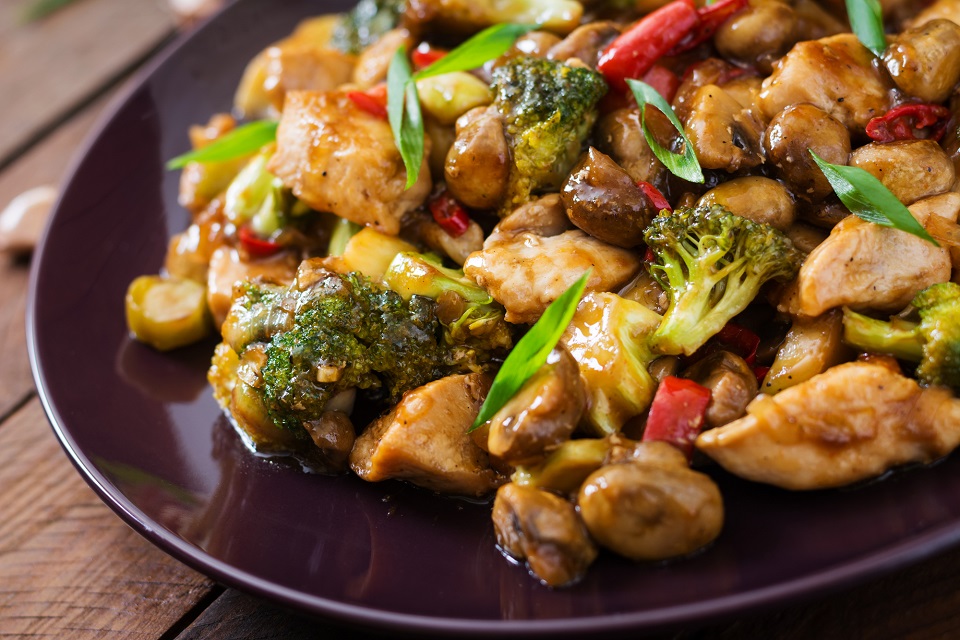Super foods, the ultimate health foods – Ginger

Whether you consume it fresh, dried, crystalline or as a tea, ginger adds a wonderful fragrance and pungency to your cooking. And it has medicinal value too.
A staple of Chinese medicine
A key medicinal in traditional Chinese medicine, many of ginger's health benefits are now being backed by Western research.
Ginger's medicinal qualities have been written about by the Chinese philosopher Confucius as far back as 500 BC. In China, it has been used for over 2,500 years and it has a reputation for relieving stomach upsets as well as being a digestive aid.
Medicinal uses
Today ginger's medical uses include the treatment of nausea and morning sickness during pregnancy, motion sickness and some cancer treatments. Ginger can also help reduce the pain and inflammation of osteoarthritis, the most common form of arthritis. Some sufferers have been able to reduce their arthritis medications with a daily dose of ginger extract.
Ginger - root or rhizome?
Ginger is often called a root but technically it's a rhizome or underground stem of the Zingiber officinale plant. Grated or sliced, it imparts a wonderful spicy heat to Asian dishes. It's rich in hundreds of phytochemicals, including gingerols, beta-carotene, capsaicin, caffeic acid, curcumin and salicylates. It's these chemicals that scientists believe are responsible for ginger's therapeutic actions.
Ginger's nutritional value
With very few kilojoules (calories) and virtually no fat, a tablespoon of grated fresh ginger (around 13g) adds its pungent flavour and aroma without adding to your waistline. It's 90 per cent water with a small quantity of the essential mineral potassium needed for fluid balance but only tiny amounts of other nutrients.
In contrast, a couple of squares (about 10g) of glace or crystalline ginger will set you back around 130 kilojoules (31 calories), due to the 8 grams of sugars they contain.

Easy ways to enjoy more ginger
- Enjoy ginger fresh in cooking where it lends freshness and vibrancy to stir-fries and curries. Peel a chunk of the ginger root and then grate, finely chop, slice or crush it in a garlic crusher.
- Fresh ginger teams well with garlic, fish, pork, chicken, beef, shellfish, beans, pumpkin and Chinese green vegetables.
- Make a home-made ginger tea: place 2 or 3 slices of fresh ginger in a cup and pour over boiling water. Leave for a couple of minutes and then drink. The longer you leave it, the hotter it gets! Add lemon juice and honey to taste.
- Dried or ground ginger has a long history as a flavouring in cakes, biscuits and puddings (date and ginger cake).
- Pep up a Japanese meal with pickled ginger on the side.
- Indulge in a few squares of crystalline ginger as an after-dinner treat instead of chocolate.
- Try a half a teaspoon of dried ginger to two cups of flour in your favourite fruit cake, cookies or muffins.
- Team up ginger with garlic and sesame to create a versatile marinade-cum-sauce for fish, pork or chicken.
Storage
Store fresh ginger unpeeled in the vegetable crisper of the fridge for one to two weeks. Or peel and chop into pieces and freeze. It can also be stored in a glass sealed jar, covered in sherry, in the fridge. Ground ginger should be stored in an airtight container away from light and heat.
More research on ginger
Ginger works as a pain reliever
Daily consumption of 2g raw or heat-treated ginger produced moderate-to-large reductions in muscle pain following exercise-induced muscle injury. The study used 2 grams of either raw (study 1) or heated (study 2) ginger or placebo for 11 consecutive days. Read the full research from the Journal of Pain.



